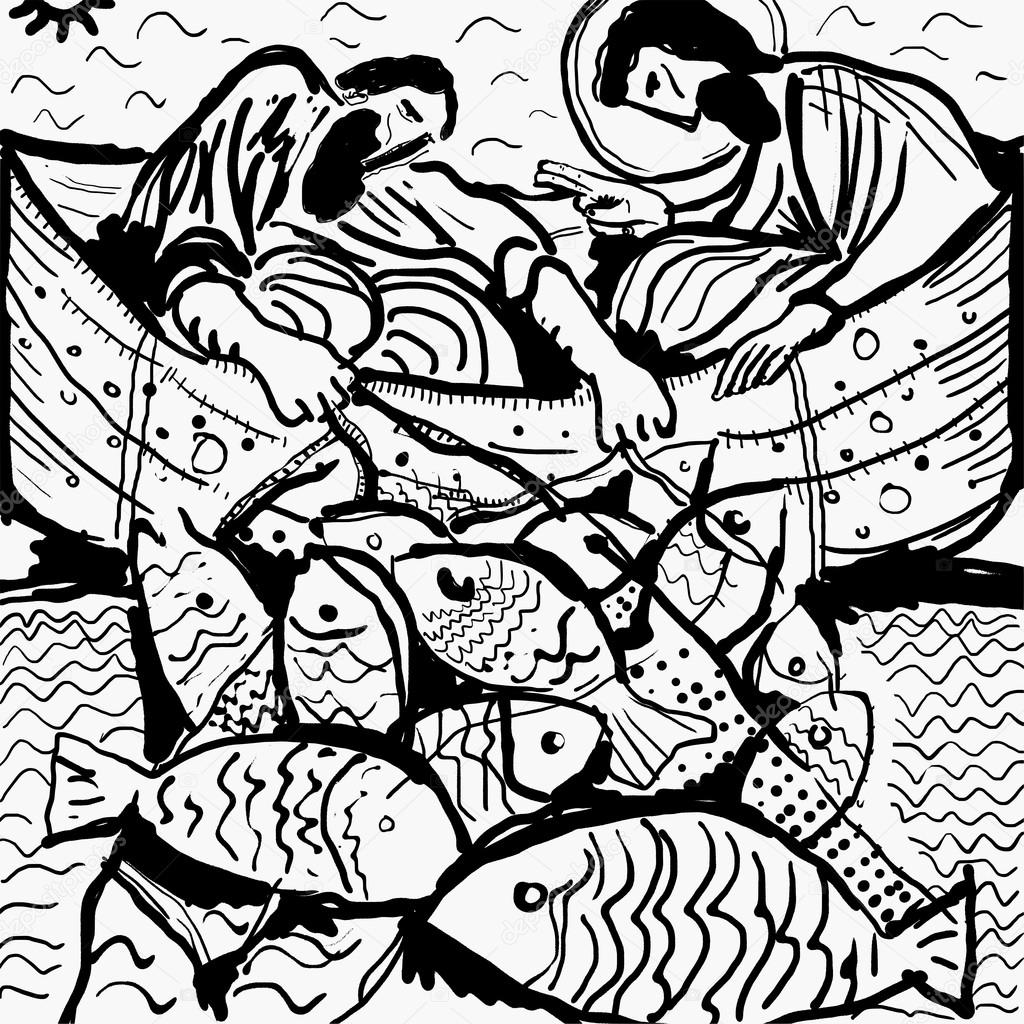Fr Paolo Consonni, MCCJ
When the Portuguese first arrived in Macau in the 16th century, Macau was home to settlements of fishermen, and these origins have left an indelible mark on the culture of the city. Fish and seafood are common delicacies in Cantonese cuisine and they will surely appear in the menu during the celebrations of this New Year.
This culture is somehow alien to me. I have to admit that I have never fished in my entire life. My hometown is far from the sea so fish was rarely seen on our table, even during Lent (I enjoy eating fish and seafood now!). From this point of view, it is not easy for me to relate to the vocation story narrated in this Sunday’s Gospel (Lk 5:1-11), where fishermen, boats and fish are in the spotlight.
However, the context in which this call takes place is very familiar to me: the exhaustion of burning the midnight oil; the fruitless toiling; the feeling of frustration. “Master, we have worked all night long but have caught nothing”. In spite of my best efforts, things often don’t go the way I would like them to. Being a missionary is indeed like being a fisherman. The catch is not guaranteed, and coming back empty handed is a frequent result. The dangers of leaving the security of familiar shores are very real. I am sure that many of you recognize yourselves in what I have just described. We are indeed living in very uncertain times.
“Put out into the deep water and let down your nets for a catch”. Peter put his trust in Jesus: “Master, if you say so, I will let down the nets”. His faith led to a great catch of fish: a clear invitation to obey Jesus’ words if we want our lives to be fruitful. But while the disciples were filled with amazement at the miracle, Peter fell on his knees: “Go away from me, Lord, for I am a sinful man!” . A very “deep emotion” resulted from fishing in deep waters.
You must know that the people of Israel were afraid of the unpredictability of a large body of water and never mastered the art of sailing. They also feared the unknown sea monsters they believed were lurking in the abyss.
Similarly, the depth of the human heart is a place full of unknown monsters and highly unpredictable. In spite of the advancement of psychology, the human heart and especially the unconscious, remain largely a mystery. It takes courage to venture into that realm, where our wounds and fragilities lie.
Those depths are where the Word of God needs to reach in order to truly transform us, because many of the decisions we make are strongly influenced by what lies there. Peter’s sense of unworthiness came to the surface together with the nets full of fish: “Go away from me, Lord, for I am a sinful man!”. A healthy “fear of God”, if not enlightened by Grace, can easily mutate into the deadly sin of despair. “By despair, man ceases to hope for his personal salvation from God, for help in attaining it or for the forgiveness of his sins. Despair is contrary to God’s goodness, to his justice — for the Lord is faithful to his promises — and to his mercy.” (CCC 2091) Peter will have to face the monster of despair again after his denial of Jesus. Looking at Judas, we know how dangerous it is to face such feelings. We need to be “caught” in the safety net of God’s mercy in order not to drown in the abyss of negativity that we carry within us.
“Do not be afraid; from now on you will be catching people.” The fragile boat of the Church, with the nets of the Word and the Sacraments, is still called to venture into the deep waters of human despair to lead everyone out of darkness into the light of God’s love. Jesus tells us not to be afraid of our own fragilities which will surely emerge in the process, because while we offer God’ s mercy to others, God will pull us out of our own darkness too.
Let’s start this New Year welcoming Jesus into the boats of our lives, and, with Him, let’s venture into the deep waters of this humanity longing for mercy, for light, for love. Trusting His promise more than our capabilities.
P.S. According to tradition, before being crucified, Simon Peter once more felt “unworthy” of dying in the same manner as Jesus, and asked to be crucified upside down. We can interpret this not as self-deprecation, but as a tender gesture of love towards the One who saved him from despair.


 Follow
Follow


